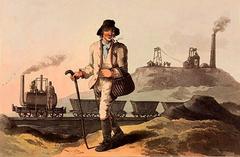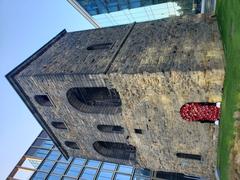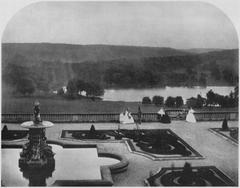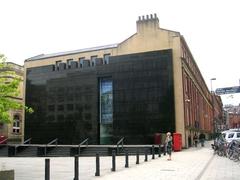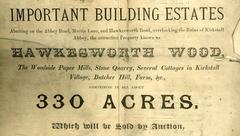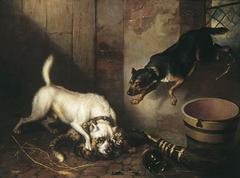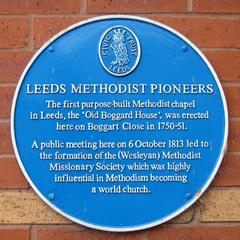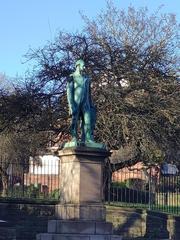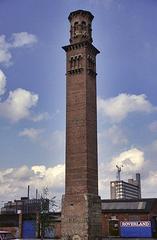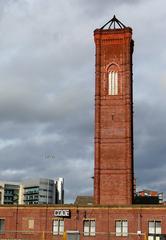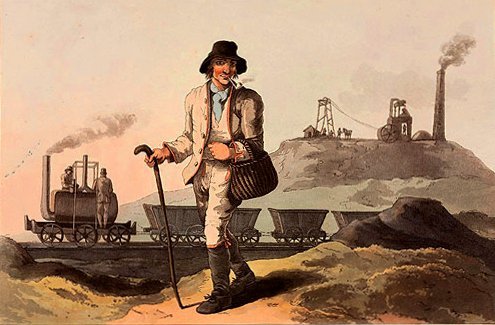
Middleton Railway Leeds: Visiting Hours, Tickets, and Guide to Historical Sites
Date: 14/06/2025
Introduction
Middleton Railway in Leeds, United Kingdom, is internationally recognized as the world’s oldest continuously operating railway, with a proud history dating back to 1758. As a living testament to industrial heritage and innovation, Middleton Railway offers a fascinating window into the origins of rail transport and the pioneering steam locomotive technology that helped shape global railway development. Originally built to transport coal from the Middleton collieries to Leeds, it was the first railway to be officially authorized by Parliament, setting a legal precedent for railway expansion in Britain.
Today, Middleton Railway is a vibrant visitor attraction operated by dedicated volunteers. Visitors can enjoy authentic steam and diesel train rides, explore the Engine House museum, and participate in special themed events, all within an accessible and family-friendly setting. Conveniently located in Hunslet, the railway is close to Middleton Park and the John Charles Centre for Sport, making it an ideal addition to any Leeds itinerary. For current Middleton Railway visiting hours, tickets, and event details, please refer to the official Middleton Railway website or BBC Leeds.
Table of Contents
- Introduction
- Historical Overview
- Visitor Guide
- Attractions and Activities
- Visitor Facilities and Amenities
- Nearby Leeds Historical Sites & Attractions
- Preservation, Volunteerism, and Legacy
- Frequently Asked Questions (FAQs)
- Visuals and Media
- Plan Your Visit Today
- References and Further Reading
Historical Overview
Early Origins and Industrial Context
Coal mining in Middleton dates as far back as the 13th century, with early extraction through shallow bell and gin pits (andylickley.co.uk; Wikiwand). The area’s abundant coal fueled local industries such as brickmaking, metalworking, and brewing. By the mid-1700s, competition from Rothwell, which could ship coal to Leeds via river, threatened Middleton’s dominance.
To safeguard the mines’ future, Charles Brandling’s agent, Richard Humble, proposed a horse-drawn wagonway—an early railway—to move coal efficiently to Leeds. This idea mirrored wagonways in North East England and set the stage for Middleton’s pioneering role in railway history (andylickley.co.uk; Wikiwand).
Parliamentary Authorization and Early Construction
In 1758, Middleton Railway became the first railway in the world to receive official authorization by Act of Parliament, granting the right to construct a line and secure wayleaves across private land (Wikipedia). The original wooden-railed line began operation in 1755, transporting coal from Middleton Colliery to Casson Close near the River Aire.
Technological Innovations and Steam Locomotion
By the early 19th century, Middleton Railway upgraded its wooden rails to iron, improving durability and efficiency. In 1812, it made history by introducing the world’s first commercially successful steam locomotives, designed by Matthew Murray and John Blenkinsop (BBC). Blenkinsop’s rack railway system, utilizing a toothed rail for extra traction, powered the pioneering ‘Salamanca’ locomotive—the first twin-cylinder steam engine to operate in commercial service (andylickley.co.uk; Amusing Planet). This innovation predates Stephenson’s Rocket by more than a decade.
Evolution, Expansion, and Preservation
Steam haulage was initially phased out in 1835 (replaced by horse-drawn wagons), before returning in 1866. By 1881, the railway was converted to standard gauge, linking with major national railways (Wikiwand). After the closure of Broom Pit in 1968, preservationists—mainly from Leeds University—ensured its survival. In 1960, Middleton became the world’s first standard-gauge railway operated entirely by unpaid volunteers (Wikipedia; Yorkshire Reporter).
Today, the railway runs approximately 1 mile (1.6 km) between Moor Road and Park Halt, offering scenic journeys through post-industrial landscapes and green spaces (Wikipedia).
Visitor Guide
Visiting Hours and Ticket Information
- Operating Days: Generally open Saturdays, Sundays, and Bank Holiday Mondays from April to October. Additional Wednesday openings occur during school holidays.
- Typical Hours: 10:00 AM – 4:30 PM (may vary for special events; always check official updates).
- Ticket Prices (2025):
- Adults: £12
- Children (3–15 years): £6
- Family (2 adults + up to 3 children): £32
- Under 3s: Free
- Earlybird and event-specific discounts may apply.
- Ticket Purchase: Buy tickets at the station or book online in advance, especially for popular events (Middleton Railway Official Site).
How to Get There and Accessibility
- Address: Middleton Railway, The Station, Moor Road, Hunslet, Leeds, LS10 2JQ.
- By Car: Free, ample on-site parking with clear signage.
- By Train/Bus: From Leeds railway station, take a short taxi ride or bus (routes 117, 203, 118S, 200, 202, 118, or 201) to Burton Road, followed by a 10-minute walk.
- Accessibility: Step-free access to the museum, café, and most platforms. Some carriages are wheelchair accessible; visitors are encouraged to call ahead for specific requirements (Middleton Railway Special Events).
Travel Tips for Visitors
- Arrive early, especially during themed or gala days.
- Dress for the weather—outdoor platforms and park trails can be muddy.
- Bring a camera for train and park photography.
- Check event calendars for unique experiences like Steampunk Markets or Santa Specials.
- Dogs on leads are welcome.
- Picnic tables and a café are available on site.
Attractions and Activities
Heritage Train Rides
Enjoy a round-trip journey on an authentic steam or diesel train between Moor Road and Park Halt. The ride covers 1.25 miles, lasting about 5–7 minutes each way, with views of green spaces and remnants of Leeds’ industrial heritage (Triphobo).
Museum and Engine House
The Engine House museum, located at Moor Road station, houses an impressive collection of historic locomotives—including those built by John Fowler & Co., Hunslet Engine Company, and Manning Wardle. Interactive displays and hands-on exhibits explain the evolution of railway technology and Leeds’ global locomotive export legacy. Museum admission is free, making it a highlight for families and enthusiasts alike (Middleton Railway Special Events).
Middleton Park
Disembark at Park Halt to access Middleton Park, a 630-acre public park with ancient woodlands, walking trails, a boating lake, and a play area. The park also features community events such as guided walks and concerts.
Special Events and Themed Days
Middleton Railway hosts a full calendar of family-friendly and enthusiast events:
- Model Railway Exhibition
- A Taste of Yorkshire (food and drink festival)
- Santa Specials (festive rides in December)
- Teddy Bear Specials (for children)
- Steampunk Market
- Anniversary Celebrations
Advance booking is recommended for major events (Middleton Railway Special Events).
Visitor Facilities and Amenities
- Parking: Free on-site parking.
- Facilities: Modern toilets, accessible toilets, café serving refreshments, and a gift shop with souvenirs and model trains.
- Accessibility: Level access to key areas; accessible carriages available.
- Seating: Picnic tables and sheltered waiting areas at Moor Road.
Nearby Leeds Historical Sites & Attractions
- Abbey House Museum: Family-friendly displays on Leeds history.
- Leeds Industrial Museum: Learn more about Leeds’ engineering legacy (Museums and Galleries Leeds).
- Leeds City Centre: Shopping, dining, and culture just a short drive or bus ride away.
Preservation, Volunteerism, and Legacy
Middleton Railway is entirely volunteer-run, with opportunities for people of all ages to get involved—from train crew to museum guides. The railway’s preservation efforts have set the benchmark for heritage railways globally, and its educational programs inspire new generations about Leeds’ industrial past (Yorkshire Reporter).
Frequently Asked Questions (FAQs)
Q: What are Middleton Railway visiting hours?
A: Typically Saturdays, Sundays, and Bank Holiday Mondays, 10:00 AM – 4:30 PM (April–October), with extra days during school holidays.
Q: Where can I buy Middleton Railway tickets?
A: Tickets are available at the ticket office or online for special events.
Q: Is Middleton Railway accessible?
A: Yes, step-free access and adapted carriages are provided; check ahead for specific needs.
Q: Can I bring my dog?
A: Yes, dogs are welcome on leads.
Q: Are refreshments available?
A: Yes, the on-site café offers light meals and drinks.
Q: Are there special events throughout the year?
A: Yes, including themed weekends, markets, and seasonal celebrations.
Visuals and Media
For a preview of the railway, view high-quality images and videos of Middleton Railway’s steam locomotives, museum exhibits, and parkland on the official website. Optimized alt tags such as “Middleton Railway steam train at Moor Road station” improve accessibility and search visibility.
Plan Your Visit Today
Middleton Railway offers an authentic heritage experience for visitors of all ages. With affordable tickets, accessible facilities, and a lively program of events, it stands as a cornerstone of Leeds’ industrial story.
For the latest Middleton Railway visiting hours, ticketing details, and event schedules, visit the official Middleton Railway website. Download the Audiala app for local attraction guides, and follow us on social media for updates and special offers.
Summary and Visitor Tips
Middleton Railway remains a landmark of Leeds’ industrial and cultural evolution. With its status as the world’s oldest continuously operating railway and a legacy of innovation in steam locomotive technology, it is a must-visit attraction. Visitors benefit from comprehensive facilities, engaging events, and easy access from Leeds city centre.
For more inspiration and planning resources, download the Audiala app and explore other Leeds historical sites.
